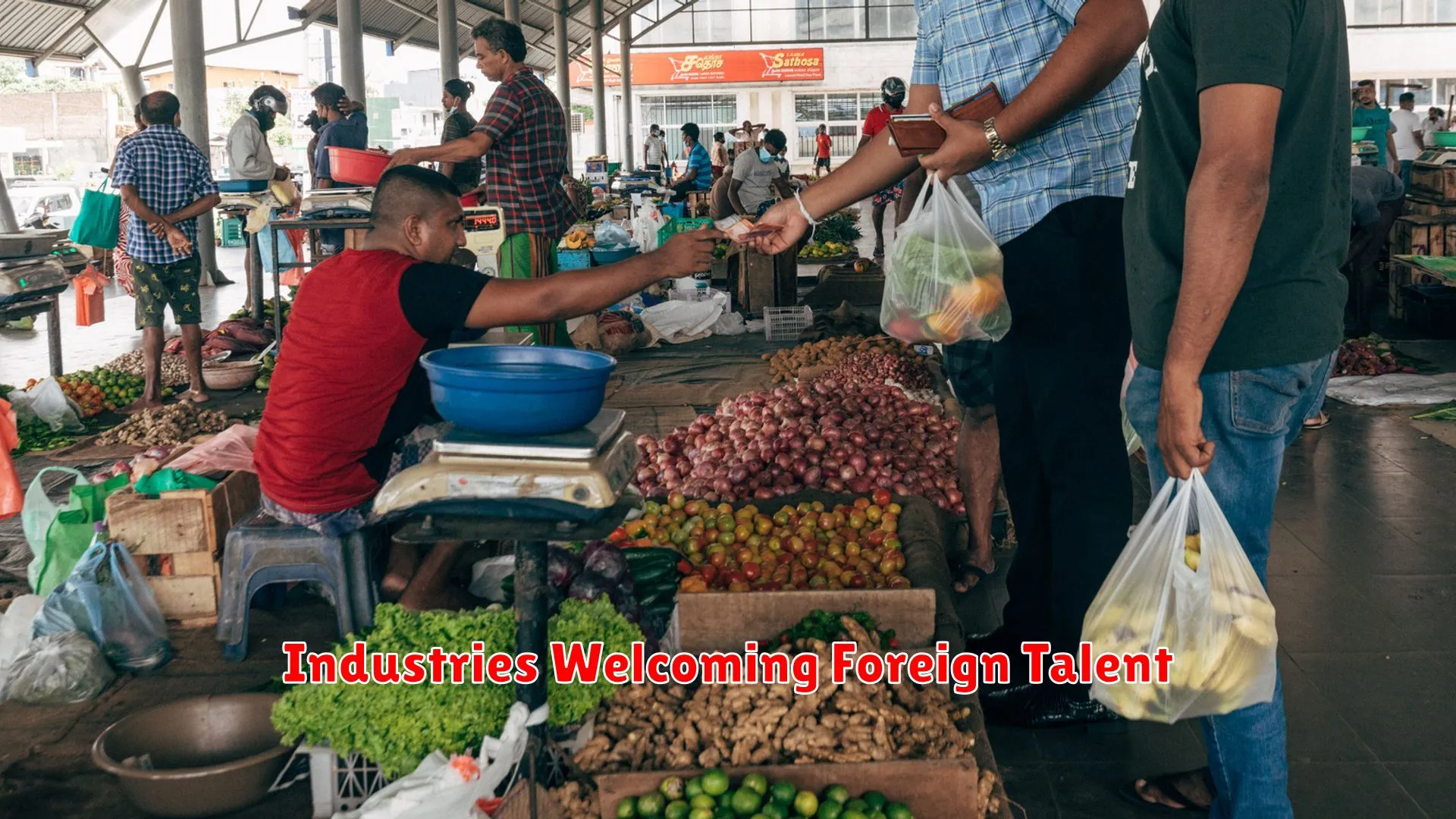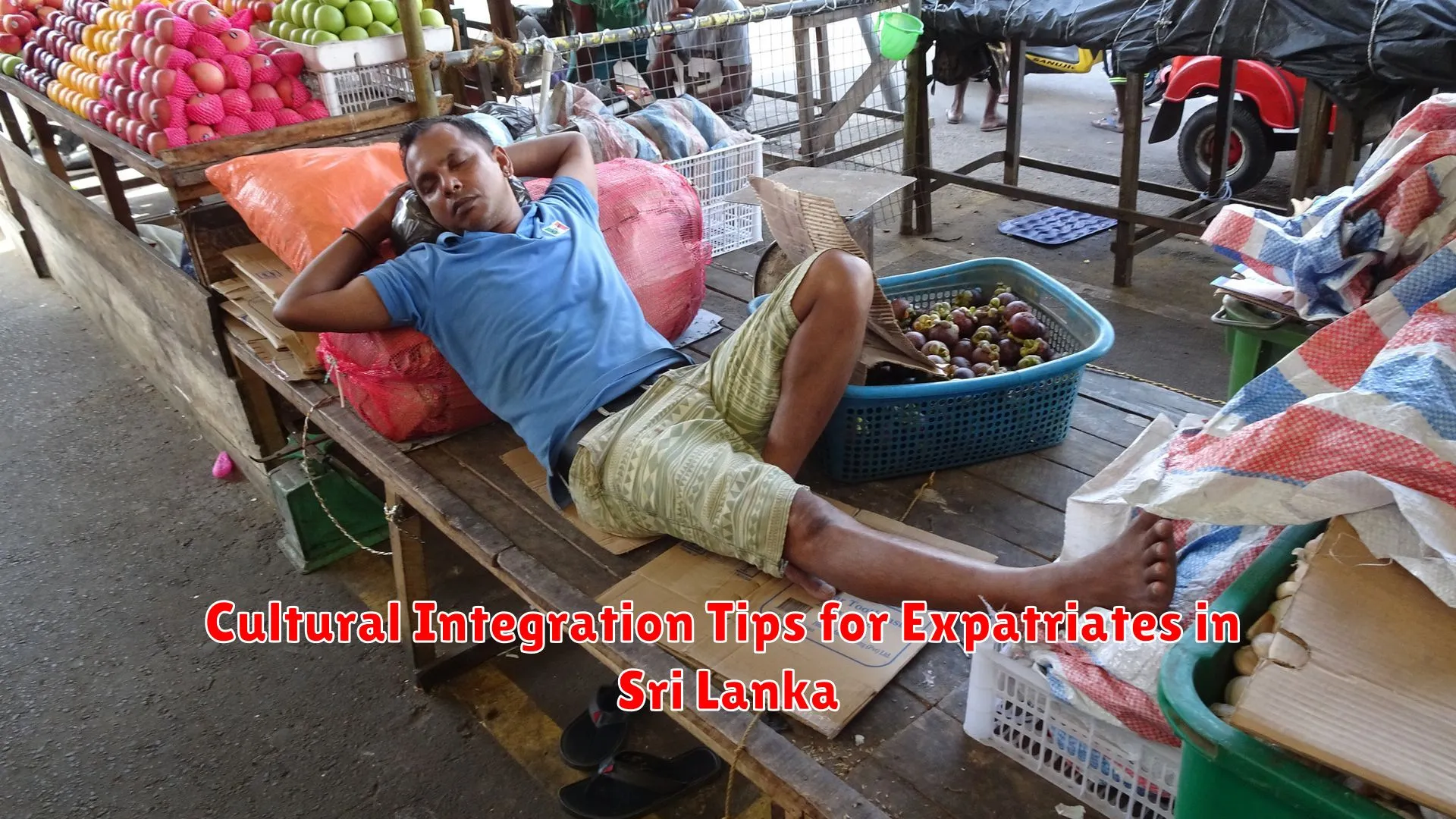
Explore the promising job market in Sri Lanka for foreign nationals, offering diverse opportunities and vibrant industries. Discover the potential for career growth and development in this dynamic and welcoming environment.
Employment Options for Expatriates
When exploring job opportunities in Sri Lanka, expatriates have a range of employment options to consider. The country’s job market offers various paths for foreign nationals seeking work in different sectors. Here are some key employment options for expatriates:
1. International Organizations and NGOs
One avenue for expatriates to find employment in Sri Lanka is through international organizations and non-governmental organizations (NGOs). These organizations often recruit foreign professionals to work on projects related to development, humanitarian aid, and other global initiatives. Positions in areas such as project management, program coordination, and research are commonly available.
2. Corporate Sector
The corporate sector in Sri Lanka also offers opportunities for expatriates with specialized skills and expertise. Multinational companies operating in the country may have openings for foreign employees in managerial, technical, or consultancy roles. Expatriates with a strong background in finance, IT, engineering, or other high-demand fields may find lucrative opportunities in the corporate sector.
3. Education and Language Teaching
Another popular option for expatriates in Sri Lanka is teaching in educational institutions or language centers. English language proficiency is highly valued in Sri Lanka, and expatriates with teaching qualifications or experience can find employment as language instructors. Moreover, international schools and universities may also have openings for foreign educators across various subjects.
4. Tourism and Hospitality Industry
Given Sri Lanka’s growing tourism sector, expatriates with a background in hospitality, tourism management, or related fields can explore job opportunities in hotels, resorts, travel agencies, and tour companies. Jobs in roles such as hotel management, tour guiding, customer service, and events management are available for foreign nationals looking to work in the vibrant tourism industry.
5. Freelancing and Remote Work
With the rise of remote work and freelance opportunities, expatriates in Sri Lanka can also consider working independently or remotely for international clients. Fields such as digital marketing, graphic design, writing, programming, and online tutoring allow expatriates to work from anywhere with an internet connection, providing flexibility and autonomy in their employment.
Industries Welcoming Foreign Talent

Foreign nationals seeking job opportunities in Sri Lanka can find a welcoming environment in several key industries that actively embrace talent from around the world.
IT and Technology Sector
The IT and technology sector in Sri Lanka is thriving, attracting skilled foreign professionals with its innovative projects and demand for expertise in areas such as software development, cybersecurity, artificial intelligence, and data analytics. Many multinational companies have established operations in Sri Lanka, providing ample job opportunities for foreign talent.
Hospitality and Tourism Industry
The vibrant hospitality and tourism industry in Sri Lanka offers diverse roles for foreign nationals, from hotel management positions to tour guides and marketing specialists. With the country’s growing status as a popular travel destination, there is a constant need for individuals with international perspectives and language skills to cater to the needs of tourists.
Export and Manufacturing Sector
Sri Lanka’s export and manufacturing sector presents opportunities for foreign professionals to contribute to the country’s export-driven economy. With a strong focus on industries such as apparel, tea, and technology manufacturing, foreign talent can find roles in management, quality control, and supply chain management.
Financial Services and Banking
The financial services and banking sector in Sri Lanka welcomes foreign nationals with expertise in finance, accounting, and banking operations. With the country positioning itself as a financial hub in the region, there are opportunities for foreign professionals to work in areas such as investment banking, risk management, and financial consulting.
Visa Requirements and Process
For foreign nationals seeking to explore job opportunities in Sri Lanka, understanding the visa requirements and application process is crucial. The country offers different types of visas based on the purpose and duration of stay.
One common visa option is the Employment Visa, which allows foreigners to work in Sri Lanka for a specific job with the approval of the Department of Immigration and Emigration. To apply for an Employment Visa, individuals typically need a job offer from a Sri Lankan employer and must meet certain criteria set by the government.
Another important visa category is the Business Visa, which is suitable for foreign nationals engaging in business activities such as attending meetings, conferences, or exploring investment opportunities. The Business Visa application process may require documentation related to the nature of the business visit.
It’s essential to note that visa regulations in Sri Lanka can change, so applicants should stay updated on the latest requirements and procedures. Working with a reputable immigration consultant or legal advisor can also facilitate a smoother application process and ensure compliance with the country’s immigration laws.
Job Search Strategies for Expatriates

For expatriates seeking opportunities in Sri Lanka’s job market, utilizing effective job search strategies is essential to secure a fulfilling role. Here are some key strategies to consider:
1. Understand the Local Job Market
Prior to initiating your job search in Sri Lanka, take the time to research and understand the local job market. Identify industries that are thriving, popular job roles for expatriates, and any specific skills in demand.
2. Network with Local Professionals
Networking plays a crucial role in finding job opportunities. Attend industry events, job fairs, and professional meetups to connect with local professionals and gather insights on job openings that may not be advertised.
3. Utilize Online Platforms
Take advantage of online job portals and recruitment websites specific to Sri Lanka. Create a strong online presence on professional networking sites like LinkedIn to showcase your skills and experience to potential employers.
4. Seek Assistance from Recruitment Agencies
Engage with reputable recruitment agencies that specialize in placing expatriates in roles in Sri Lanka. These agencies often have access to exclusive job listings and can provide tailored support throughout the job search process.
5. Customize Your Application Materials
Ensure that your resume, cover letter, and other application materials are tailored to the Sri Lankan job market. Highlight relevant experience, skills, and qualifications that align with the local industry requirements.
6. Be Open to Cultural Adaptation
Adapting to a new culture is crucial for expatriates in Sri Lanka. Demonstrate your willingness to embrace cultural differences and integrate into the local work environment to enhance your job search prospects.
Interviewing as a Foreign Applicant
Interviewing for a job in a foreign country like Sri Lanka can be both exciting and challenging for foreign nationals seeking opportunities in the local job market. Here are some key points to consider:
Research the Company and Culture
Before the interview, research the company thoroughly to understand its values, work culture, and the industry it operates in. Having this knowledge will demonstrate your interest and preparation for the role.
Understand Visa Regulations
Make sure you are aware of the visa regulations for foreign workers in Sri Lanka. This includes understanding the requirements, application process, and any restrictions that may impact your employment eligibility.
Hone Your Communication Skills
Effective communication skills are crucial during an interview. Practice common interview questions, pay attention to your body language, and be prepared to discuss your qualifications and experiences clearly and confidently.
Highlight Your International Experience
Emphasize your international experience and how it can benefit the company. Showcase your adaptability, cross-cultural communication skills, and how your diverse perspective can add value to the organization.
Ask Thoughtful Questions
Don’t forget to prepare questions for the interviewer. Asking insightful questions about the company, the role, or the work environment demonstrates your interest and engagement in the opportunity.
By approaching the interview process with preparation, confidence, and a keen understanding of the nuances surrounding interviewing as a foreign applicant, you can increase your chances of securing a position in Sri Lanka’s job market.
Cultural Integration Tips for Expatriates in Sri Lanka

When relocating to Sri Lanka for job opportunities, expatriates may encounter challenges related to cultural integration. Adapting to a new country’s customs, traditions, and social norms is essential for a successful transition. Here are some tips to help expatriates integrate into Sri Lankan culture:
1. Learn the Local Language:
While English is widely spoken in Sri Lanka, making an effort to learn Sinhala or Tamil can greatly enhance communication and foster relationships with locals. Even basic phrases and greetings can show respect for the local culture.
2. Understand Cultural Norms:
Take the time to familiarize yourself with Sri Lankan customs, such as respecting elders, dress codes for different occasions, and appropriate behavior in social settings. Showing awareness and respect for these norms will help you navigate daily interactions smoothly.
3. Embrace Local Cuisine and Traditions:
Explore Sri Lankan cuisine, which is known for its flavorful spices and unique dishes. Engaging in local culinary experiences and participating in traditional festivals and celebrations can deepen your connection to the culture.
4. Build Relationships with Locals:
Networking and forming friendships with Sri Lankans can provide valuable insights into the local way of life. Join community events, clubs, or social gatherings to expand your social circle and create meaningful connections.
5. Stay Curious and Open-Minded:
Approach cultural differences with a sense of curiosity and a willingness to learn. Be open to embracing new perspectives and adapting to the nuances of Sri Lankan society. Showing genuine interest in the culture can facilitate a smoother integration process.
By following these cultural integration tips, expatriates in Sri Lanka can navigate the nuances of the local culture and build fulfilling experiences during their time in the country.
Conclusion
Foreign nationals in Sri Lanka have promising opportunities in the job market, offering diverse industries and roles. With a growing economy and supportive policies, expatriates can thrive in this dynamic environment.
















